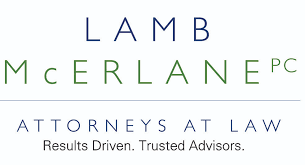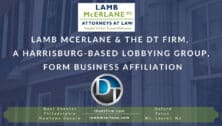Guidance on Unemployment/Workers Compensation and Health Insurance Continuation During COVID-19

 By John J. Stanzione
By John J. Stanzione
Many employers and employees have questions regarding the impact the pandemic may have on employment related matters such as unemployment compensation (UC), workers compensation (WC), and health insurance continuation (COBRA). This article attempts to address and provide some guidance on these issues.
W-2 EMPLOYEES
Generally, to qualify for UC benefits an individual must be a W-2 employee and meet all of the earnings criteria listed below during that individual’s base period (defined as the earliest four of the last five completed calendar quarters before your application for UC benefits):
- at least $116 per week during at least 18 weeks in that individual’s base period;
- at least $1,688 during the highest quarter in that base period; and
- at least $3,391 in total wages over your base period.
Those earnings do not need to be with the same employer over that base period. UC benefits are payable to employees who suffer a loss of income due to the COVID-19 virus. We address the rights of such employees and obligations of employers in a separate article.
If an employee is laid off for any reason including for reasons related to the COVID-19 virus and returns to some type of work, such employee would still be eligible for partial UC benefits so long as the employee earns less than what he or she earned in the prior employment and the work is not considered to be “self-employment”. What is considered self-employment has been the subject of numerous opinions from the Pennsylvania courts and is very fact specific.
However, as discussed below, a recent decision by the Commonwealth Court of Pennsylvania found that an individual who qualified for UC benefits after being laid off and went to work temporarily as an Uber driver was not engaged in “self-employment”. Thus, the Court held that such individual still qualified for UC benefits. (The Commonwealth Court decision is on appeal to the Pennsylvania Supreme Court).
W-2 employees are entitled to workers compensation benefits when such employees suffer a work related injury or illness. Injury or illness includes contracting the COVID-19 while at work or due to one’s work duties. The COVID-19 may qualify as an “injury/illness” under the standard provisions of the Pennsylvania Workers Compensation Act or qualify as an “occupational illness” under then occupational disease provisions of the Act.
It should be noted that an employee who suffers a work injury whether related to or not related to COVID-19 can be laid off by the employer. If that employee returns to some type of work, whether with the same employer or a different employer, that employee may still receive workers compensation benefits under certain circumstances.
GIG WORKERS
Under current Pennsylvania law, gig workers are considered independent contractors and not W-2 employees. Therefore gig workers are not entitled to UC benefits if their gig employment ends unless they were a W-2 employee during the base period and meet the earnings requirements noted above. (Query whether this law may change in light of the Commonwealth Court’s decision noted above finding that temporary part-time employment as an Uber driver was not self-employment).
However, gig workers could qualify for workers compensation benefits. Past Pennsylvania court decisions determining who is or is not an independent contractor/employee for purposes of determining workers compensation coverage have shown a liberal interpretation towards finding an employee entitled to workers compensation benefits as opposed to an independent contractor not entitled to such benefits.
This is in keeping with the spirit of the Pennsylvania Workers Compensation Act. This writer is not aware of any specific workers compensation decisions addressing Uber, Lyft, and similar “workers”. There have been Pennsylvania Department of Labor rulings addressing the status of gig workers in relation to wage and hour issues. Those rulings held that gig workers are not employees but independent contractors. There is uncertainty how the Workers Compensation Judges and courts will rule on this issue especially in light of the Commonwealth Court discussed above.
PRIVATE HEALTH INSURANCE
If an employee is provided group health insurance, the employee is entitled to the continuation of the group health insurance coverage during FMLA leave on the same terms as if he or she had continued to work. If family member coverage is provided to an employee, family member coverage must be maintained during the Family Medical Leave Act (FMLA) leave. The employee must continue to make any normal contributions to the cost of the health insurance premiums.
If paid leave is substituted for FMLA leave, the employee’s share of group health plan premiums must be paid by the method normally used during paid leave (usually payroll deduction). An employee on unpaid FMLA leave must make arrangements to pay the normal employee portion of the insurance premiums in order to maintain insurance coverage.
In some instances, an employer may choose to pay the employee’s portion of the premium, for example, in order to ensure that it can provide the employee with equivalent benefits upon return from FMLA leave. In that case, the employer may require the employee to repay these amounts. In addition, the employer may require the employee to repay the employer’s share of the premium payment if the employee fails to return to work following the FMLA leave unless the employee does not return because of circumstances that are beyond the employee’s control, including a FMLA-qualifying medical condition.
An employer is not prohibited from continuing health insurance coverage beyond the FMLA mandated leave for an employee who suffers a work injury and is out of work due to such injury. It is common for some employers to continue such coverage and ask the employee to pay that employees share of the premium out of such employee’s workers compensation benefits.
Likewise, this writer is not aware of any law which would prohibit an employer from continuing such coverage for an employee that has been laid off and is no longer being paid wages. This sometimes occurs when the employer believes the layoff is temporary and anticipates a return to work shortly.
The Consolidated Omnibus Budget Reconciliation Act (COBRA) gives workers and their families who lose their health benefits the right to choose to continue group health benefits provided by their group health plan for limited periods of time under certain circumstances such as voluntary or involuntary job loss, reduction in the hours worked, transition between jobs, death, divorce, and other life events.
Qualified individuals may be required to pay the entire premium for coverage up to 102% of the cost to the plan.
COBRA generally requires that group health plans sponsored by employers with 20 or more employees in the prior year offer employees and their families the opportunity for a temporary extension of health coverage (called continuation coverage) in certain instances where coverage under the plan would otherwise end.
COBRA requires employers and plans to provide notice to employees of their right to continue such health insurance coverage.
For more information about unemployment compensation, workers compensation or related matters, contact Lamb McErlane PC at 610-430-8000. www.lambmcerlane.com.
________
John J. Stanzione is partner at Lamb McErlane PC. He concentrates his practice in workers compensation, employment, social security disability, personal injury, ERISA and commercial litigation. jstanzione@lambmcerlane.com. 610-701-4415.
is partner at Lamb McErlane PC. He concentrates his practice in workers compensation, employment, social security disability, personal injury, ERISA and commercial litigation. jstanzione@lambmcerlane.com. 610-701-4415.
[uam_ad id=”80503″]
.
[uam_ad id=”80502″]
Connect With Your Community
Subscribe to stay informed!
"*" indicates required fields





































![95000-1023_ACJ_BannerAd[1]](https://vista.today/wp-content/uploads/2023/03/95000-1023_ACJ_BannerAd1.jpg)










